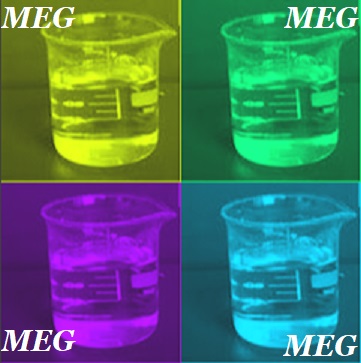Polymers Petrochemicals Graphene Polyester 13-03-2019 - Arhive
- China – Polyethylene Terephthalate
PET and its chain are weak.
- Polyamide6 and its chain continue to be steady.
PET Bottle grade export 1,065/1,110 $/ton – PET Bottle grade domestic market 8,350/8450 yuan/ton – PET Filament grade SD domestic market 7,900/8,000 yuan/ton – PET Filament grade BR domestic market 7,900/8,050 yuan/ton
PTA Taiwan 855/865 $/ton – PTA domestic market 6,500/6,650 yuan/ton – MEG $ 635/650 $/ton – MEG domestic market 5,150/5,300 yuan/ton – PX Korea 1,095/1,105 $/ton
POY 150D/48F domestic market 8,800/8,900 yuan/ton – DTY 150D/48F domestic market 10,500/10,600 yuan/ton – PSF domestic market 8,850/8,950 yuan/ton

Crude Oil Prices Trend

MEGlobal, the world leader in the production of monoethylene glycol (MEG) and diethylene glycol (DG), nominated the MEG April contract price for Asia at USD840 per tonne, which is USD10 per tonne higher than in March, an ICIS source said the company.
The price was named on the terms of delivery CFR Asia.
The MEG spot prices rose after polyester sales rose in March following the return of buyers to the market after a long Chinese New Year
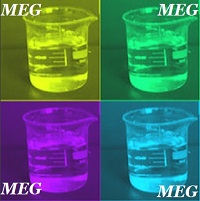
Chinese scientists have developed a nanogel that can be applied to textiles for durable antibacterial effects.
Since bacterial infections seriously threaten human’s health, the design of nanoscale antibacterial materials has become a hot research area.
Scientists from Shanghai-based Donghua University have developed a kind of environmentally friendly nanogel with long-lasting antibacterial effects, good biocompatibility and positive effects on preventing wound infection.
The nanogel has a regular spherical structure with a size of about 200 nanometers. The nanogel grafted on the surface of cotton fibers displayed good thermal stability, which is essential for the finishing of fabrics.
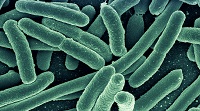
The world is slowly turning into a massive landfill with lots of waste accumulation day by day. Norway is one of the first nations to step up with its impressive recycling game, with 97 percent of its plastic bottles now being reused.
Norway now has a program that pushes both business owners and members of the public to recycle their used plastic bottles. Now, other countries are trying to follow suit and the hope is that someday, the world will be one in this environmental endeavor.
Norwegian Way Of Recycling
The Norwegian system of recycling plastic bottles involves the government putting an environment tax of about 40 cents per bottle for all plastic producers and importers. If companies are able to recycle plastic materials, their taxes go lower. If the organizations manage to recycle more than 95 percent of their plastic materials, their taxes are forfeited.

The downloadable document shows that it is technically possible and economically worthwhile to produce goods from 100% recycled plastic.
TOMRA Sorting Recycling has published an e-book examining the role that recycling can play in providing solutions to the world’s worsening resource crisis. It explores the technical feasibility and progress made towards 100% recyclability of plastics and highlights the opportunities of using high-quality recycled plastics for manufacturers of plastic products and packaging.
The e-book points out that the consumers’ concerns about waste bring opportunities for brands to demonstrate corporate social responsibility and build customer loyalty, to the benefit of their business results.
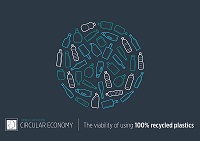
A handful of states have proposed legislation to add bottle bills in an effort to recycled used beverage containers.
Lawmakers in at least six states released proposed legislation to add bottle bills so far in 2019. Bills have been proposed in Arkansas (House Bill 1771), Florida (Senate Bill 853), Illinois (House Bill 2651), New Jersey (Assembly Bill 1710), Tennessee (House Bill 0814 and Senate Bill 0885) and West Virginia (House Bill 3120).
Arkansas state House Rep. Vivian Flowers (D-Pine Bluff) filed HB 1771 on March 11 in hopes of introducing a bottle bill. The state last proposed legislation in 2007, but according to a news release from KATV in Little Rock, Arkansas, proposed legislation “appears to have bipartisan support.”
Susan Collins, executive director of the Container Recycling Institute, Culver City, California, says lawmakers in various states propose bottle bills every year; however, she adds that seeing six different states with active proposals is a little on the “high side.”
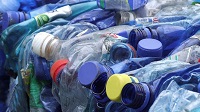
EU has “done all that is possible,” says Tusk
European Council President Donald Tusk says the EU is “disappointed” by tonight’s Brexit result — and that it has done “all that is possible to reach an agreement” with the UK.
“Given the additional assurances provided by the EU in December, January and yesterday, it is difficult to see what more we can do.
If there is a solution to the current impasse it can only be found in London,” Tusk said in a statement, supplied by his spokesman.

The Gross Domestic Product (GDP) of the country registered in the fourth quarter of 2018 a fall of 2.4% compared to the previous quarter, falling into technical recession for the first time since 2009.
Turkey consolidates its role in the European fashion sourcing while its economy weakens. The county, which has entered a technical recession, shot up last year its exports of textile and fashion goods to Europe, relying mainly on the devaluation of the local currency. Now, in this new period of recession, everything indicates that the situation will persist.

Honeywell (Charlotte, N.C.; www.honeywell.com) announced tthat Phu My Plastics Production JSC will use Honeywell UOP’s C3 Oleflex technology to produce polymer-grade propylene at its facility in Vietnam. The plant will help meet growing domestic demand for plastics in Vietnam and other countries in Southeast Asia. This is the first award for Honeywell’s propane dehydrogenation technology in Vietnam.
Honeywell UOP will provide technology licensing for the Oleflex process, the process design package, proprietary and non-proprietary equipment, on-site operator training, technical services for startup and continuing operation, and proprietary catalysts and adsorbents.
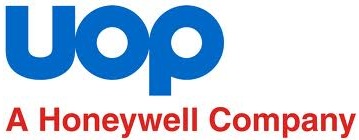
Water-based, waterproof and water-vapor permeable but also to allow water vapor from sweat to escape to the outside air. More and more buyers are also looking for outdoor textiles that are sustainable.
All three of these requirements are met by INSQIN® technology, which stands for water-based textile coatings that don’t use any solvents.
At the European Coatings Show 2019 from March 19–21, Covestro will present outdoor clothing that owes its functional properties to this coating technology at its “City of Sustainnovation” in hall 4A, booth number 528.

Thrive™ consists of a variety of solutions dedicated to providing CPGs with the opportunity of fulfilling their sustainability mission. With the industry moving toward a stronger circular economy, PPT is committed to staying true to its mission of providing customers with purposeful, powerful, packaging, while also presenting the added benefit of incorporating a sustainable package solution for participating brands. Readily available solutions consist of: Thrive™-Recyclable and Thrive™-Post Consumer Recycled Content (PCR). PPT plans to expand this line with multiple solutions including: Thrive™- Renewable and Thrive™-Compostable.
According to Dave Potter, Vice President of Strategic Sales, “As corporate sustainability objectives continue to turn into solid mandates, the timing appears perfect for serious sustainable packaging solutions.
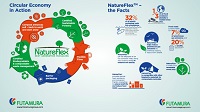
The structural undersupply ofrecycled polyethylene terephthalate (R-PET)available for the packaging sector will necessitate imports from outside of the EU,according to Raffi Schier, European director at Bantam Materials International, on Tuesday.
Schier, speaking atthe ICIS PET Value Chain conference in Amsterdam, the Netherlands, quoted from ICIS analysis showing that current collection volumes are only enough for packaging and beverage companies to include just 16.08% R-PET content across the industry.
“If we have 16% supply… how do you bridge that gap? You bridge it with non-EU material,” Schier said.
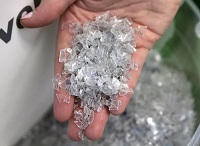
A ‘no deal’ Brexit would be very negative for the UK’s science industry, according to a new survey by the Royal Society of Chemistry.
In a survey of 5,800 chemistry professionals, 72% said that a ‘no deal’ would be very negative for UK science, with only 4% expecting a positive impact.
UK based respondents of the survey raised concerns about access to international facilities, collaborative networks, funding for research, access to large-scale grants and easy movement for skilled scientists.
More so, 71% said there would be a negative impact in attracting talent to the UK due to a new visa requirement.

MEGlobal, the world leader in the production of monoethylene glycol (MEG) and diethylene glycol (DG), nominated the MEG April contract price for Asia at USD840 per tonne, which is USD10 per tonne higher than in March, an ICIS source said the company.
The price was named on the terms of delivery CFR Asia.
The MEG spot prices rose after polyester sales rose in March following the return of buyers to the market after a long Chinese New Year.
